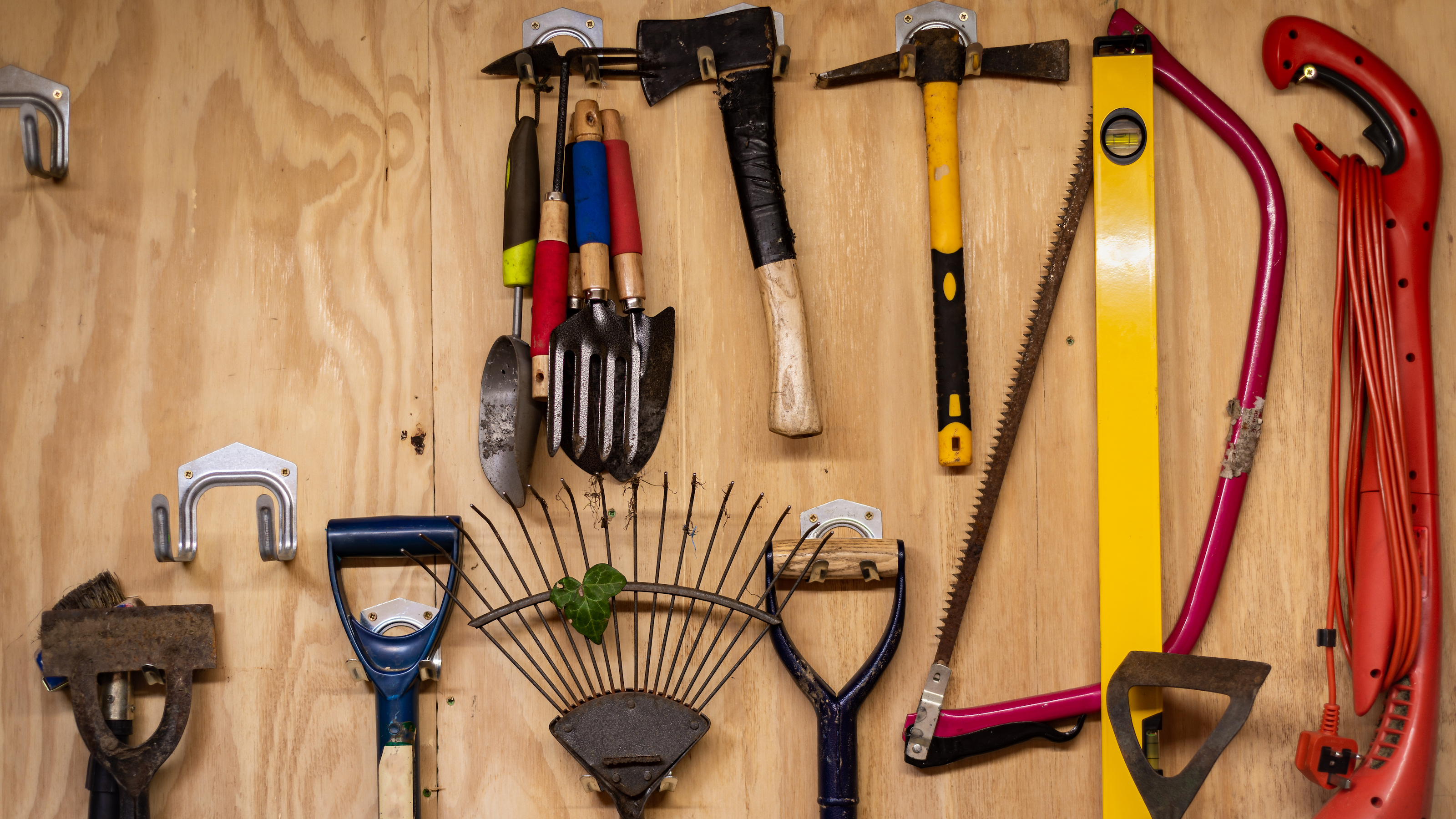10 things you might not know about package self builds
There are so many benefits to taking a package route when it comes to self building your home. We take a look at the essential things you need to know
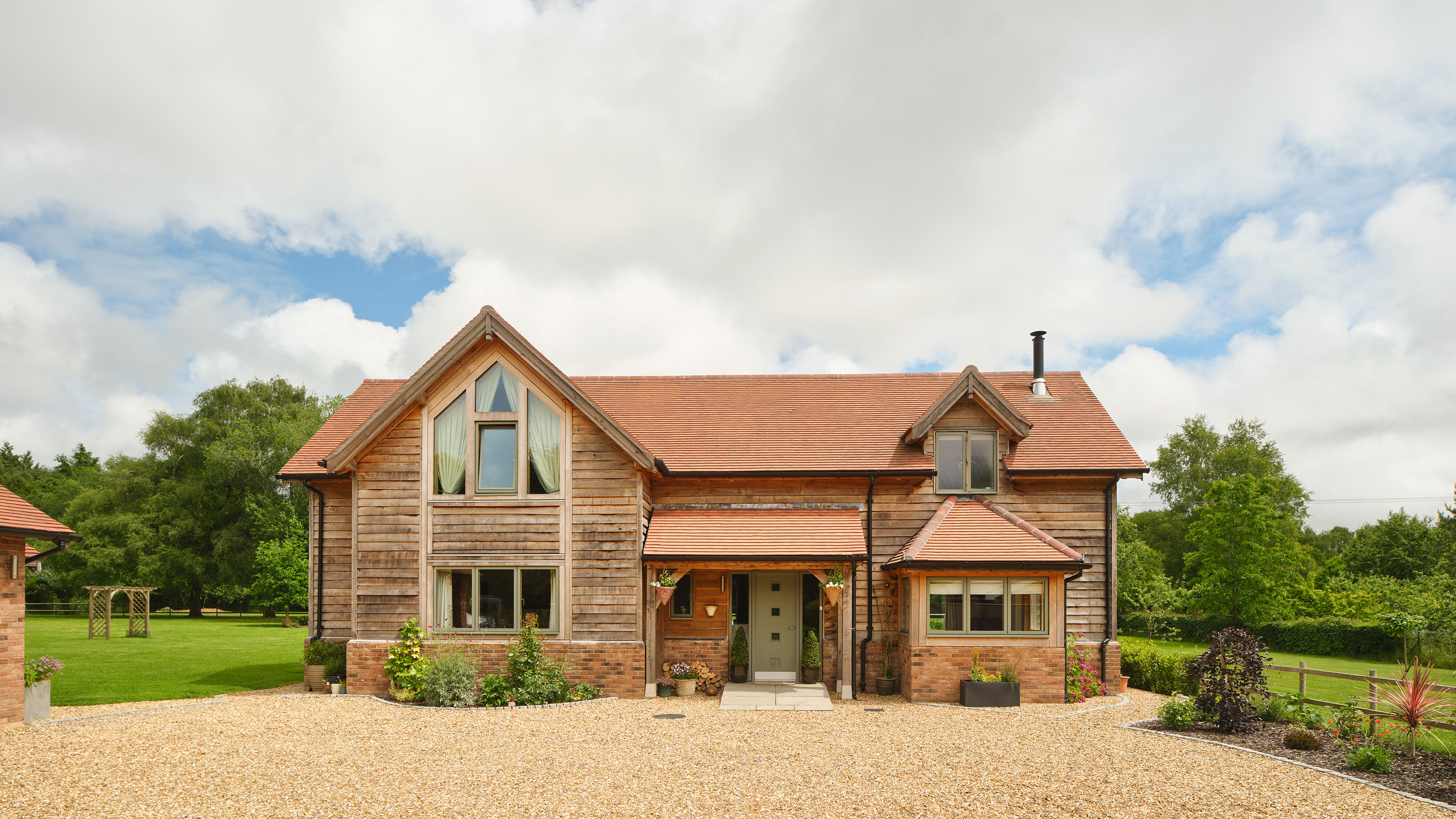
Taking a self build package route is a hugely popular option — and it isn’t hard to see why. This is the ideal route for those new to the world of self build or homeowners wishing to benefit from the experience and knowledge that many of these package companies have in the world of self build.
“Package companies (also known as turnkey providers) are the all inclusive option of the self-build world,” explains Jason Orme, former Editor of Homebuilding & Renovating magazine. “They will offer design, labour/construction and material supply as part of a fixed-price contract — this provides the most hands-off way of self-building.”
Here, we take a look at the most important things to know if you are considering taking the plunge and asking a package build company to take on your project.
What is a package self build?
Package home companies offer a wide range of services to those wishing to build their own home, allowing customers to choose the level of personal involvement they want to have in the design and construction of their new house.
For those wanting a very hands-off role, a package company can do everything from finding a plot and gaining planning permission to designing, building and even finishing off your home for you.
At the other end of the spectrum, if you like the idea of taking on some form of self build project management, it is possible to ask a package company to simply come up with a design and get you to the weathertight stage before leaving you to it.
If this is a route that appeals to you – which it does to many, particularly those taking on their first self build – here’s 10 things you may not already know...
1. There are many different types of package self build
Despite what many people think, there is not just one route to getting a package self build. While it is obviously quite possible to take a completely turnkey approach to this type of project, letting your chosen supplier take care of each and every aspect of your build, this is most certainly not the only way.
“Border Oak offer a wide range of different ‘package’ contracts – from a ‘frame only’ option that is ideal for those who want to do some work themselves or to use their own builders, all the way through to a ‘complete package’ where everything is undertaken by us and our builders with our project managers and the specification agreed between us,” explains Merry Albright. “A ‘water tight’ package is very popular but we would still recommend using a package company so that you have access to all the right detailing, design and structural services and someone who is responsible for the house being designed and delivered as it should be.
“Border Oak are unusual in that we can also offer full design services (concept, planning, technical and building regulations) and have a range of plots too. We also provide our own technical detailing, quantity surveying and use materials that are unique to us — and we can offer warranty provision and access to all the ancillary services that can be dovetailed into your project such as renewables and completion tests.”
While many people love the idea of having more of an input when it comes to their new home, a package build is ideal for those who are keen to leave well alone too.
“We also offer a full turnkey package. Working with one of our professional project managers as your single point of contact, we will coordinate all your build, keeping within budget while you make the all important decisions on internal and external finishes,” explains Charlie Mills, managing director at Oakwrights. “From foundations to the last lick of paint, our turnkey project manager will oversee the build of your bespoke home, exactly to your wishes.”
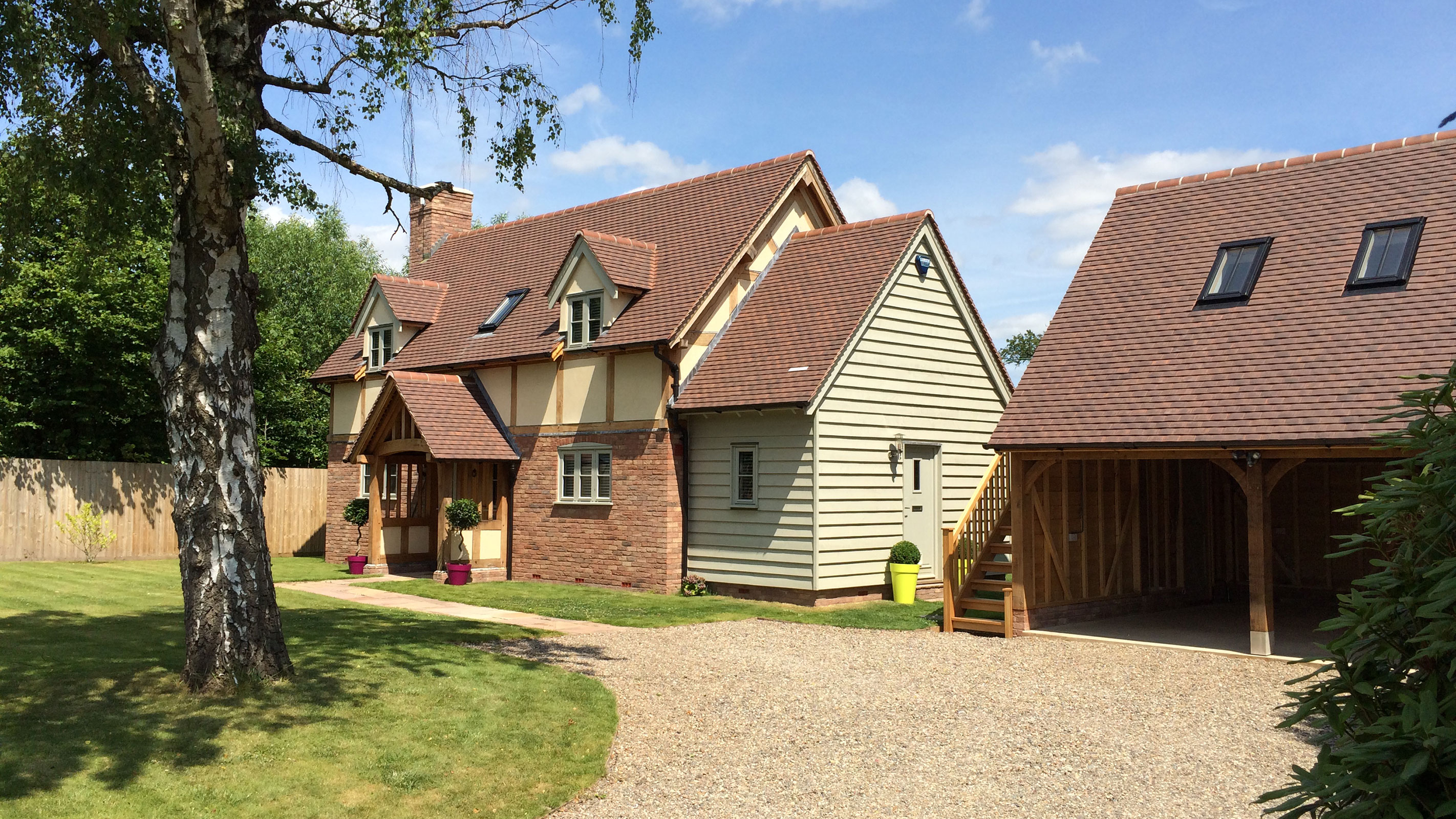
2. Your package company can help with building regulations
Building regulations can be something of a minefield for many self builders, keen not to realise at the last stage of the build that they have missed something crucial — and this is where your package supplier could come in handy.
“Everything we do is bespoke, which means clients can have pretty much whatever they want — but it is worth bearing in mind that nowadays there are a lot of complicated regulations and tests that need to be met for new homes, and the best (and least expensive) way to do this is from the very first design stage,” advises Merry Albright. “We would highly recommend working with a designer or design team that understands what needs to be done and how it can be achieved as the regulations are incredibly tight and it will save a lot of work and money if we can help design from the beginning.
“We are very happy to take other architects' designs and help make them compliant, but the earlier your package company is involved the better — they will have standard detailing and specific methods that need to be incorporated to meet the stringent demands.”
3. A package home doesn’t have to be expensive
While there is no denying that taking the package route is going to push up your build costs when compared to taking a fully DIY self build route, they are not as expensive as you may have thought.
“Contrary to popular belief, building with an oak frame isn’t as expensive as you might think,” says Gareth Edmunds, director of Welsh Oak Frame. “There are several ways you can keep prices down and still achieve a stunning oak frame building.
“If you are going for a more traditional style frame which features exposed oak rafters, then it will be more expensive. However, if you were to go for a more simple, post and beam style oak frame, where elements such as rafters are made of softwood and hidden behind the walls, then it will be less expensive. The higher the volume of oak, the higher the cost.”
“One of the advantages of custom build and package contracts is that the budget is set by the client — so whilst it might be slightly more expensive than if you self built with your own hands, there is still a sense of control over the costs and the contract coverage that offers good value and savings, including VAT,” explains Merry Albright of Border Oak. “Good package companies won’t charge the VAT which means you don’t have to pay it and reclaim it (like you would with other self builds) as claiming back money at the end of the project is rarely helpful!
“We offer a ‘fixed price’ contract for everything we do so that you have peace of mind regarding costs.”
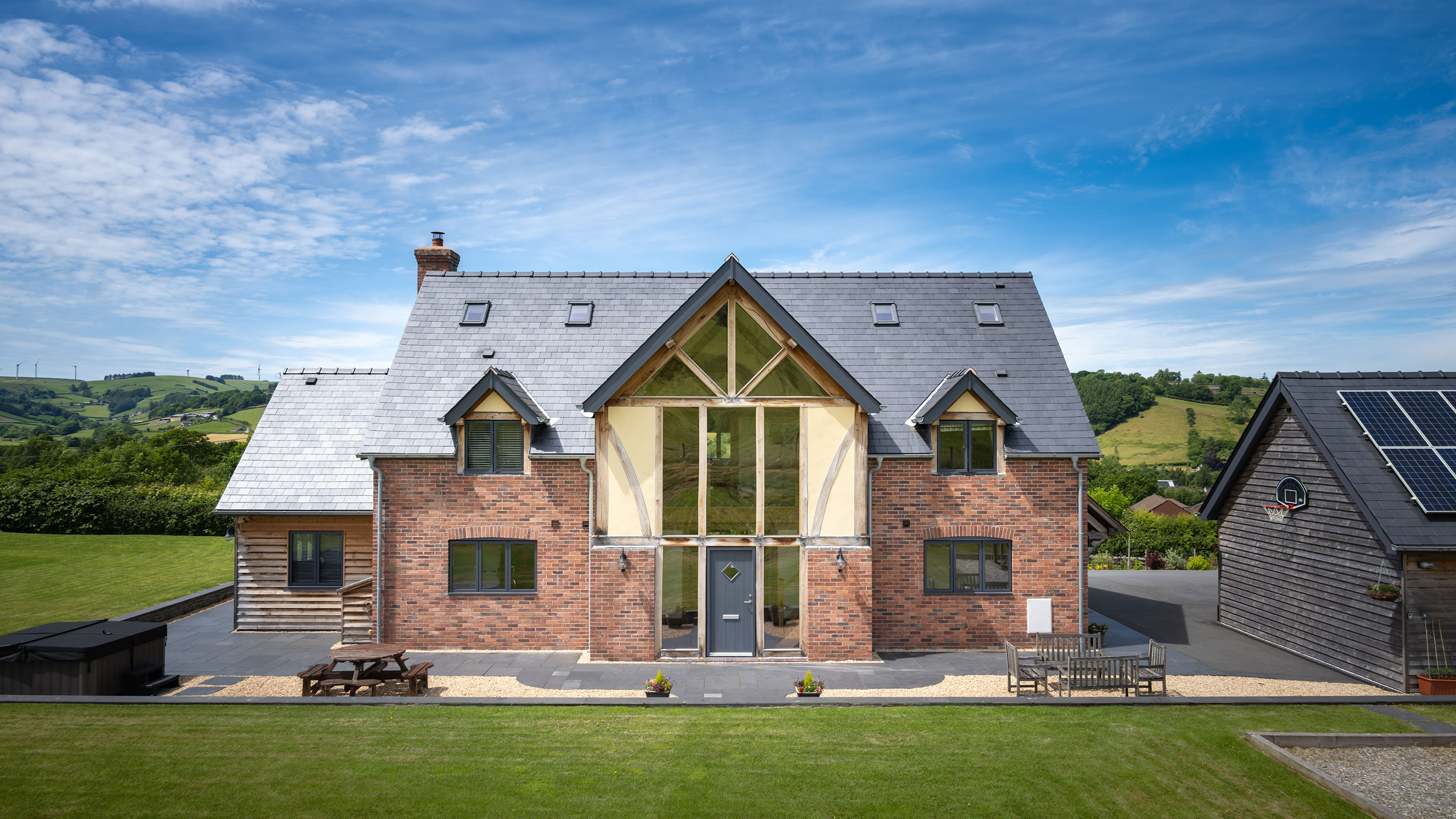
4. Most package homes are quick to construct
You will probably have heard that building a package home can result in very quick build times — but did you know just how fast you could be enjoying your new home?
“Typically a package company will build to a set schedule and so deliver more quickly (as the slower the build the more expensive it is),” says Merry Albright. Most package homes can be built between 20 and 40 weeks depending on size and complexity, especially if they have an element of ‘prefabrication’ off site such as oak framing which can speed up build times significantly.”
“Over 95% of our clients choose to have both their oak frame and their insulated walls and roof from us in the form of our WrightWall and WrightRoof encapsulation systems,” says Oakwrights' Charlie Mills. “This essentially allows you to build your home to a dry shell in a matter of weeks. The design of both your frame and your encapsulation panels are carried out in controlled conditions in our workshops, uninhibited by the British weather. So, whilst your chosen builders are finishing your foundations, we are working on your frame and panels meaning once we arrive on site, progress is incredibly quick.”
“The beauty of an oak frame package home is that once our clients have completed their foundations and the frame has been manufactured it can be assembled incredibly quickly once it gets to the site,” reveals Gareth Edmunds. “With most Welsh Oak Frame packages, they can take anywhere between seven days to three weeks to assemble, and if everything falls into place some clients can be into their homes within 12 months.”
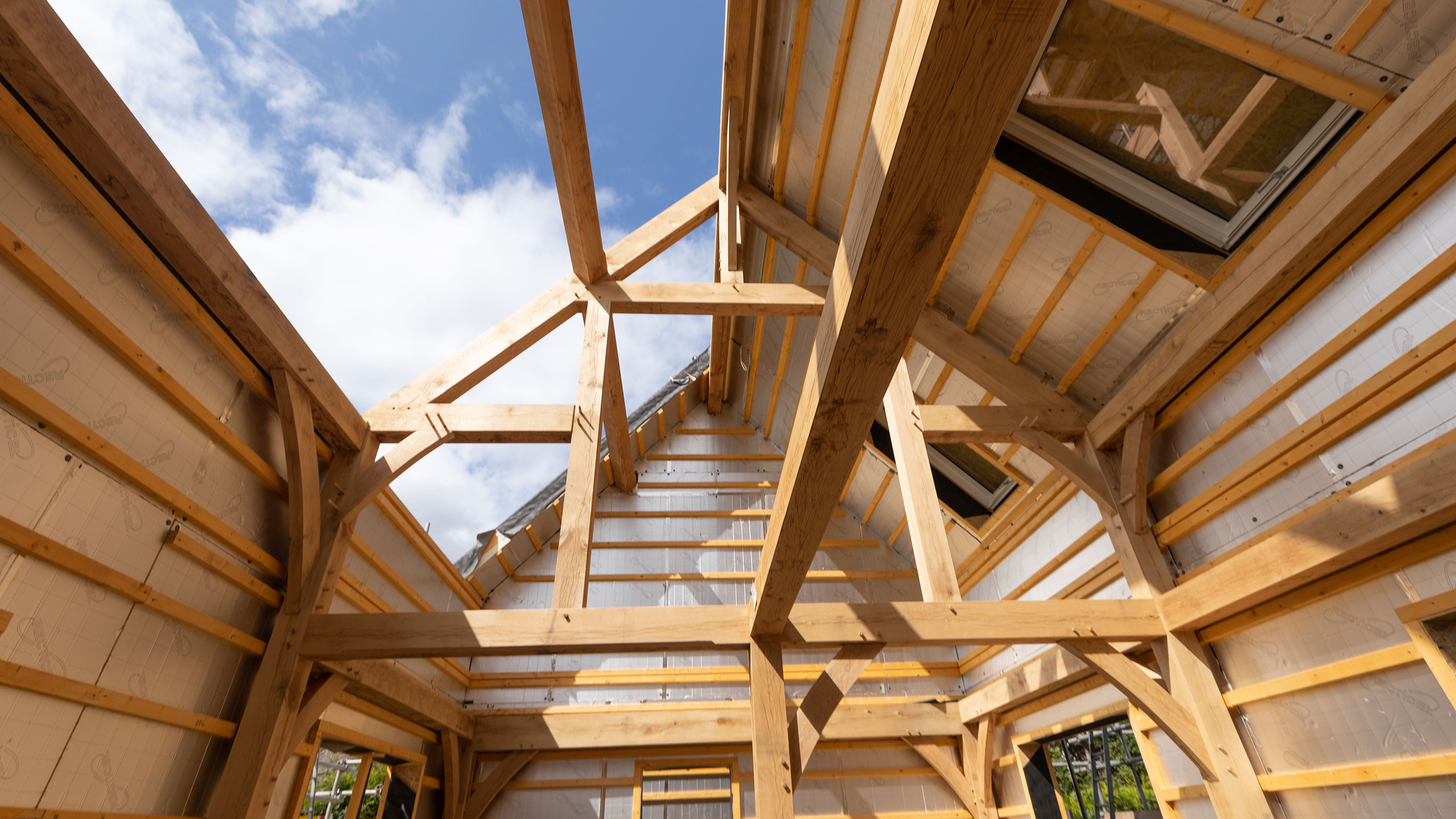
5. Your home can still be totally individual to you
One of the concerns that some people considering a package build have is that they will be restricted when it comes to the designs they can choose from and that they won’t be able to achieve something that looks like a one-off — but this is just not true and there are some great examples of inspiring kit homes all over the UK that prove this.
“Some people worry that they will be limited to a standard ‘catalogue’ design if they chose the package route — this shouldn’t be the case,” says Merry Albright. “The trick is to find a company that has a long and varied portfolio of completed homes, but also have in-house design services so that you can benefit from their learnt experience (a good package company will have learnt a lot from previous decades of building, but also want to take ownership of their product and their design capabilities) whilst using their bespoke offering to achieve your dream home.
“Ideally you want to base your starting point on a design that you know they have built successfully before, but one that can be amended and changed to meet your needs. Or to choose a tried and trusted system of building (such as encapsulated oak framing) that provides a wide range of bespoke options – such as a variety of external finishes and the changing of layouts and sizes – so that it is compliant yet variable.”
“Around 60% of the houses we build for our clients are designed by our in-house team,” says Charlie Mills. “Most of these designs are completely bespoke to meet our client’s individual lifestyle needs, whilst others are based on designs within our four ranges with changes to internal layouts.
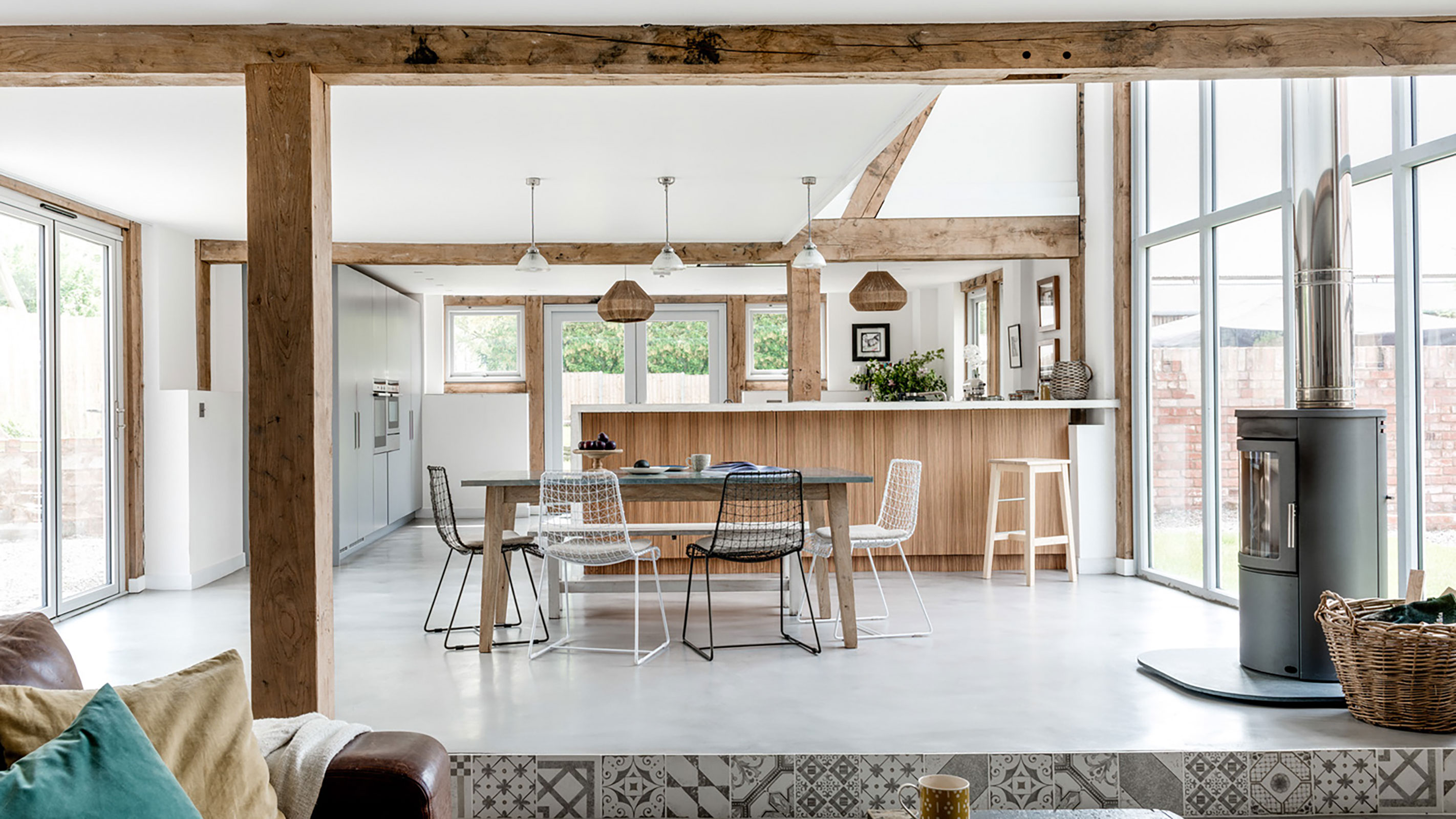
6. Package homes do not have to look traditional
On hearing the term ‘package build’ most people’s thoughts seem to turn to very traditional-style properties, with exposed timbers, designed to look as though they were built some time ago. However, those wanting a contemporary style home should not discount a package build.
“Although oak frame construction is a long-established way of building this doesn’t mean your home has to look traditional,” explains Gareth Edmunds. “Modern materials, such as white render, wood and aluminium cladding, give a contemporary outside finish, as do large amounts of glazing in floor-to-ceiling picture windows, bi-folding doors and roof lights.”
Interiors need not miss out the modern style front either — some of the most stunning schemes can be found in contemporary oak frame homes.
“Open-plan spaces and mezzanine floors can be achieved with wide spans,” says Gareth. “Keep joinery details simple and natural to show off the honeyed tones of the light oak.”
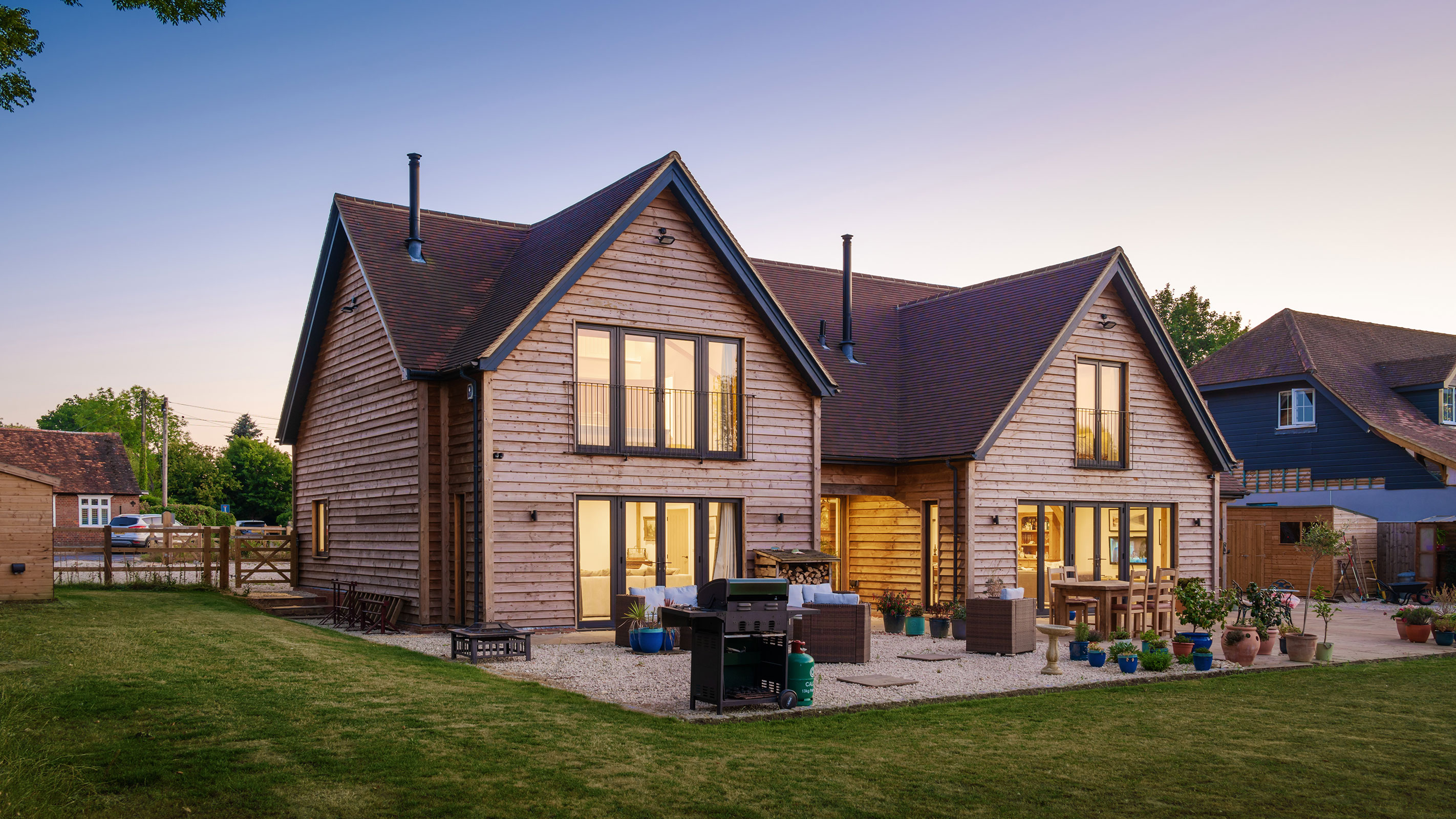
7. Oak frame isn’t your only option
While it is true to say that many of the best known package companies specialise in designing and building oak frame homes, for those on a budget or looking for something different, oak isn’t the only wood option.
“Oak and softwood timber frames are frequently used together as part of a build,” explains Gareth Edmunds. “Often self builders choose to target the oak frame in the main living spaces to create visual impact and then use a softwood timber frame for the ‘hidden’ parts of the design, for example in floor joists, and in less important rooms, such as the utility area, cloakroom and bathrooms.”
8. A package company could help find you a plot
Of all the aspects of a self build, finding a plot on which to locate your new home has to be one of the biggest hurdles faced.
“Finding a plot for a self build boils down to putting in the work to look for it and a sprinkle of good luck,” says professional builder Mark Stecenson. “In order to find and secure a building plot, you're up against some stiff competition — and not only from other self builders. Professional land finders, small builders and the rest of the development industry are all also searching for great build plots.”
This is where a package company could help — many have plots for sale, can help you secure planning permission and assist with your search.
“More recently our ‘custom build package’ has added extra support to our clients as it addresses one of the most difficult parts of a self-build journey, finding the perfect plot as well as installing the major utilities ready for our clients to start their build,” confirms Charlie Mills.
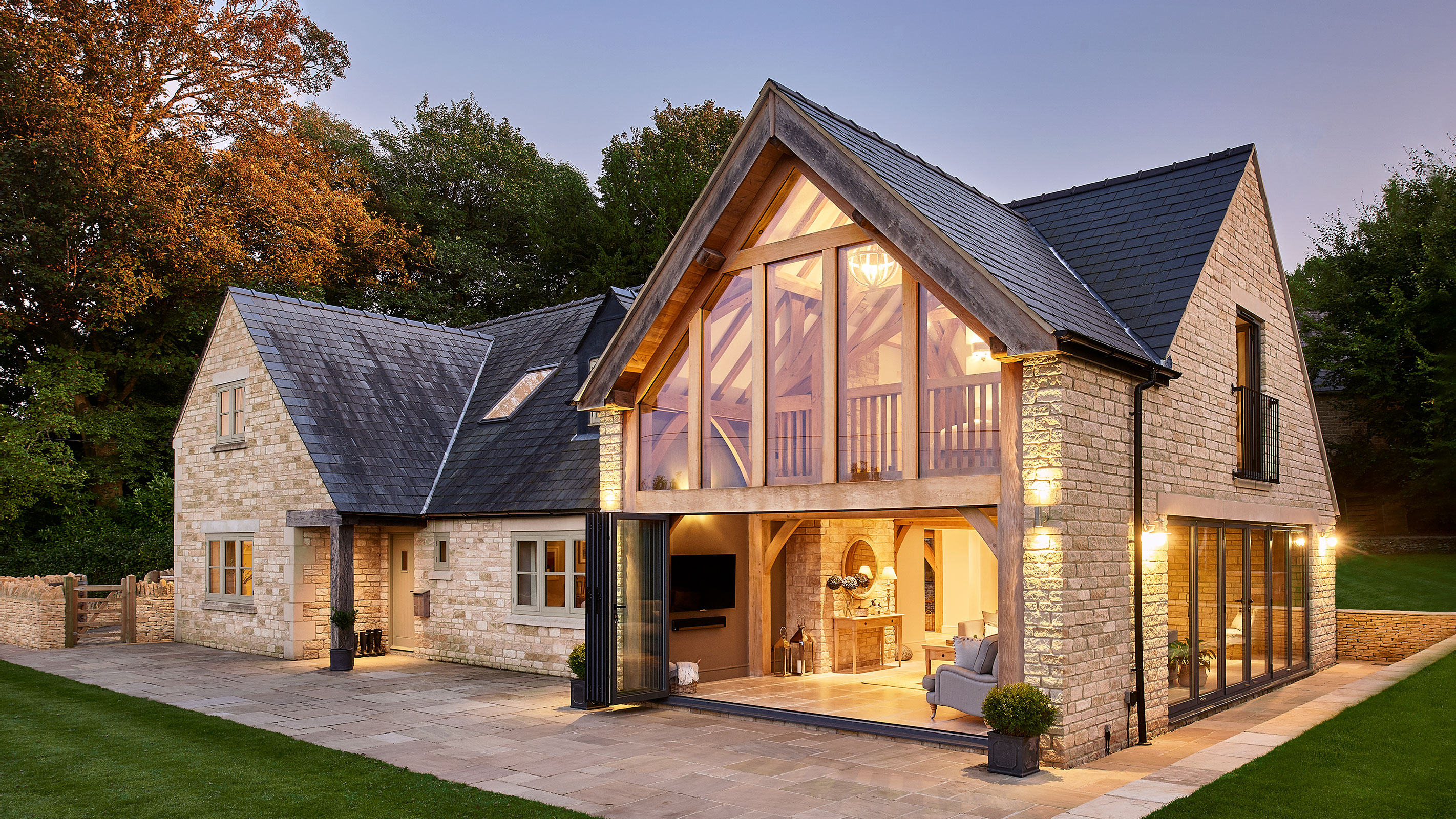
9. Package homes are a very eco-friendly option
If it is eco houses you are interested in then you will be pleased to hear that choosing a package route can be one of the best ways to achieve a home with great eco credentials.
“In many ways, the turnkey approach is essential to the delivery of highly airtight, energy-efficient wall, floor and roof systems in a way that leaving a build to a series of builders on site isn’t,” says Jason Orme. “Most of the UK and continental suppliers offer closed panel timber frame systems which closely resemble structural insulated panels (SIPs), and many companies offer a range of slightly different options — e.g. ‘standard’, ‘eco’, ‘Passivhaus’ (at different price points). Typical U values for these walling systems are in the 0.11-0.18W/m2 range — easily meeting and surpassing standard Building Regulations.”
10. A package home doesn’t have to be timber frame
And, finally, although oak and timber frames are still the most widely offered and popular type houses for those taking the package route, there are now companies out there offering alternative construction methods.
“While the majority of package companies operate in the timber frame sector – where they offer manufacture of the frame and erection – a small number of package suppliers do offer masonry construction,” explains Jason Orme. “Similarly, insulated concrete formwork (ICF) suppliers often offer a service that provides airtight and efficient wall systems.”
Get the Homebuilding & Renovating Newsletter
Bring your dream home to life with expert advice, how to guides and design inspiration. Sign up for our newsletter and get two free tickets to a Homebuilding & Renovating Show near you.
Natasha was Homebuilding & Renovating’s Associate Content Editor and was a member of the Homebuilding team for over two decades. In her role on Homebuilding & Renovating she imparted her knowledge on a wide range of renovation topics, from window condensation to renovating bathrooms, to removing walls and adding an extension. She continues to write for Homebuilding on these topics, and more. An experienced journalist and renovation expert, she also writes for a number of other homes titles, including Homes & Gardens and Ideal Homes. Over the years Natasha has renovated and carried out a side extension to a Victorian terrace. She is currently living in the rural Edwardian cottage she renovated and extended on a largely DIY basis, living on site for the duration of the project.

